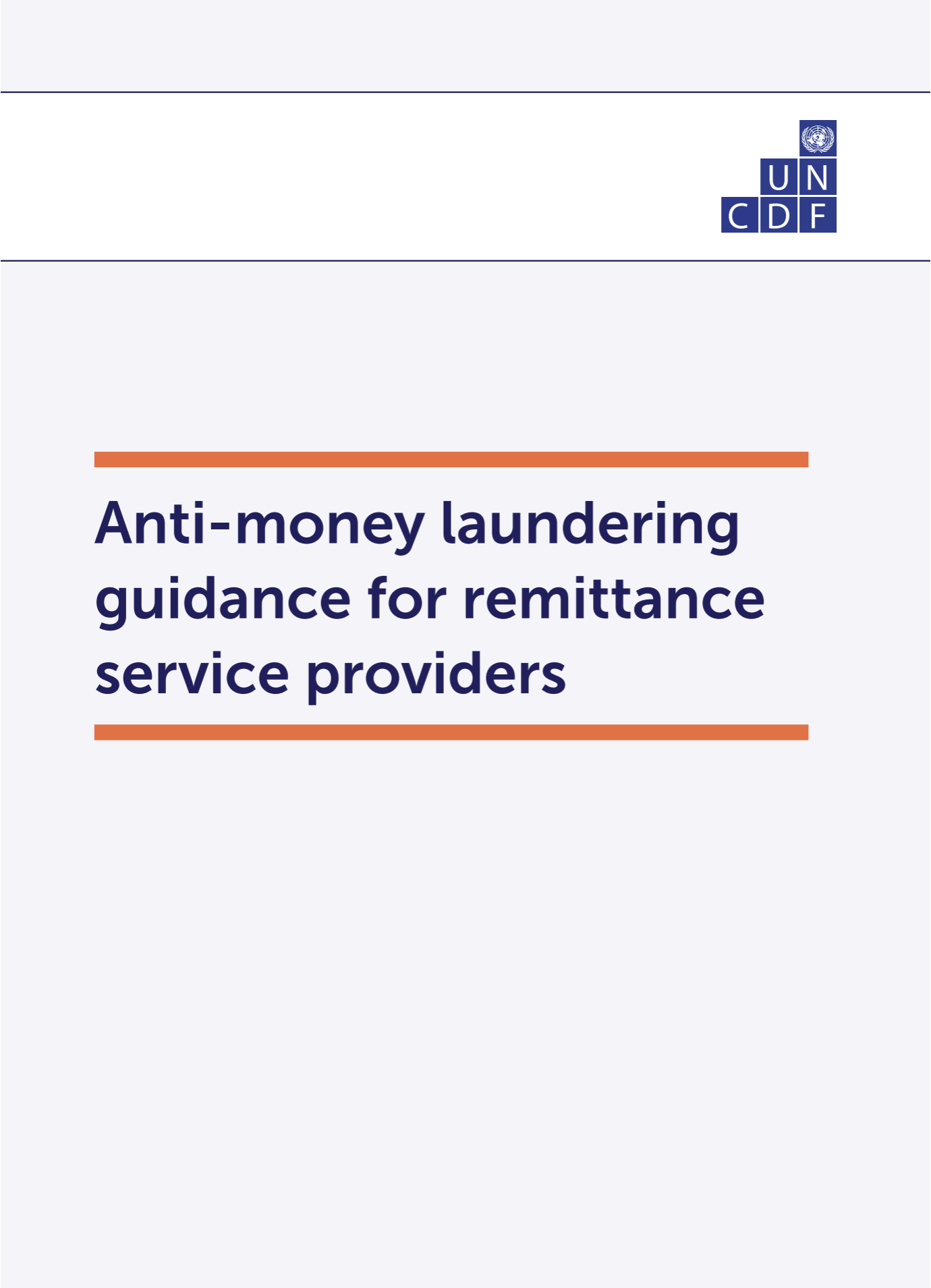UNCDF’s Migration and Remittances for Development Programme, or the Programme, aims to contribute to sustainable development by making remittances more accessible and affordable while helping build resilience for migrants and their families. For remittance service providers (RSPs), the Programme seeks to build the capacity to understand the financial needs and preferences of migrants and their families and design and deliver responsive products considering gender.
AML/CFT regulatory frameworks have been in place across most countries, and these countries are committed to improving their AML/CFT regimes. Most regulatory frameworks cover vital AML/CFT aspects, including cross-border cash transportation, bearer negotiable instruments, and financial transaction transparency. The frameworks also specify rules, procedures, and conditions for conducting CDD and/or KYC processes for all financial services. However, a lack of clarity regarding regulatory expectations and burdens, including compliance with sanctions, sometimes leads big banks from dealing with smaller players in the market and customers perceived as high risk. Moreover, existing AML/CFT frameworks lack standardized and transparent licensing requirements for international mobile money transfers (incoming and outgoing) and criteria for obtaining licenses to connect new corridors. Additionally, these regulations lack risk-based transaction limits, and mobile wallet balance and transaction limits fluctuate between international and domestic transactions.
This AML/CFT guidance outlines best practices and processes to guide RSPs in compliance with the FATF recommendations and national AML/CFT legislation.
